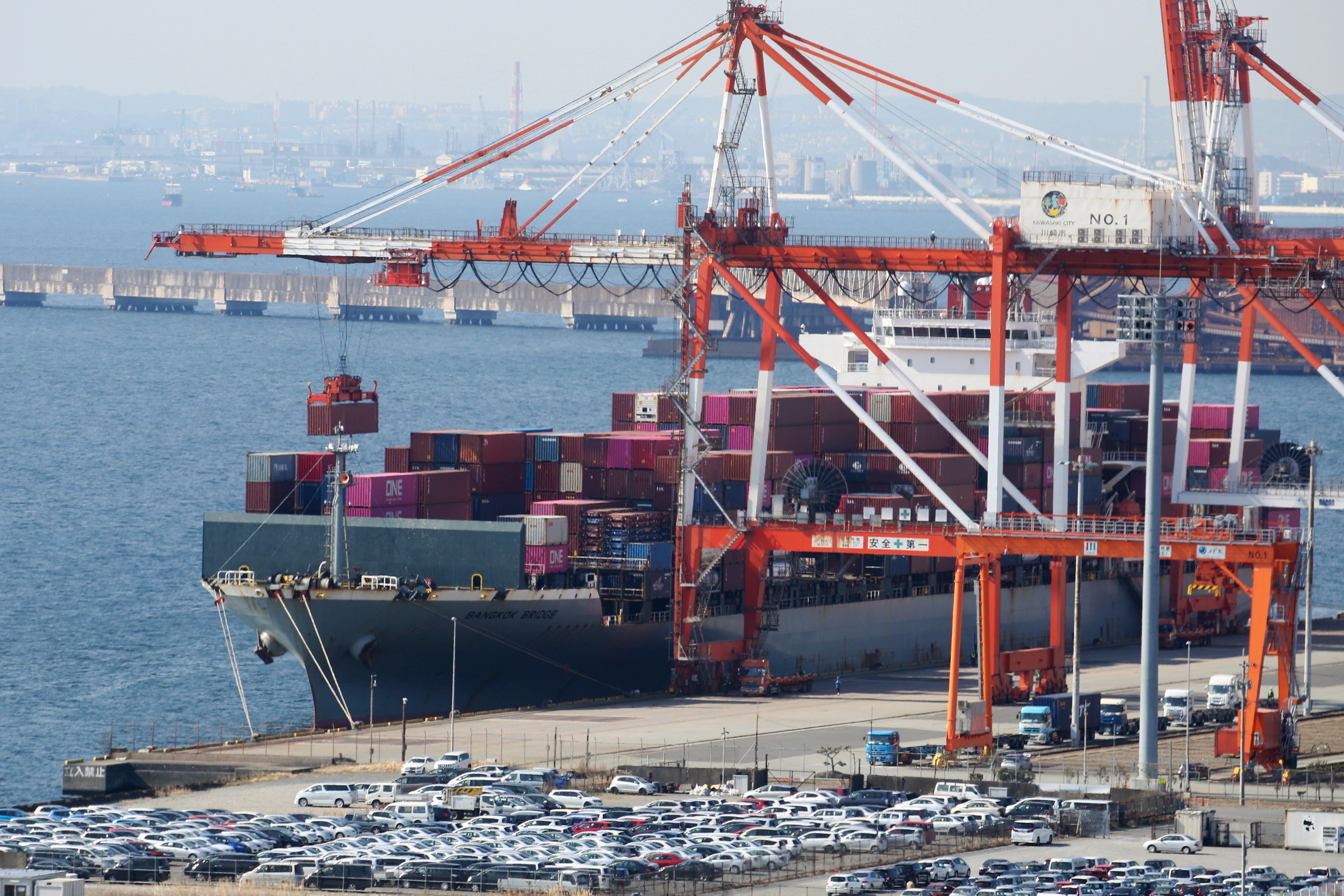Japan's exports surge 13.5% in May, helped by cheap yen and strong demand in US, Asian markets
Japan has reported its exports surged 13.5% in May, helped by a weak yen and strong demand in the U.S. and Asia

Your support helps us to tell the story
From reproductive rights to climate change to Big Tech, The Independent is on the ground when the story is developing. Whether it's investigating the financials of Elon Musk's pro-Trump PAC or producing our latest documentary, 'The A Word', which shines a light on the American women fighting for reproductive rights, we know how important it is to parse out the facts from the messaging.
At such a critical moment in US history, we need reporters on the ground. Your donation allows us to keep sending journalists to speak to both sides of the story.
The Independent is trusted by Americans across the entire political spectrum. And unlike many other quality news outlets, we choose not to lock Americans out of our reporting and analysis with paywalls. We believe quality journalism should be available to everyone, paid for by those who can afford it.
Your support makes all the difference.Japan's exports surged 13.5% in May, faster than expected growth helped by a weak yen and strong demand in the U.S. and Asia.
Finance Ministry data reported Wednesday showed that the trade deficit totaled 1.22 trillion yen ($7.7 billion), down nearly 12% from 1.38 trillion yen a year earlier. Imports grew 9.5%, year-on-year, to nearly 9.5 trillion yen ($60 billion).
Exports totaled 8.3 trillion yen ($53 billion) and grew at the fastest since November 2022. Shipments to the United States were up nearly 24% and those to the rest of Asia rose more than 13%, led by double-digit growth in shipments of vehicles, electronics and machinery.
Trade with Europe mostly fell.
The value of Japan’s imports tends to grow when the Japanese yen loses value against the U.S. dollar and other major currencies. The dollar is trading at nearly 158 yen, up from 140-yen levels a year ago.
Japan is a resource-poor nation that imports almost all its oil, and higher imports of oil, gas and other fuels are a big factor behind the deficit in May, for the second month in a row. Fruit imports also gained in May.
But a large factor behind the increases in both exports and imports was rising prices overall, which inflated their value compared with a year earlier, Marcel Thieliant of Capital Economics said in a report.
That can be seen in the muted impact of trade on the economy, which contracted at a 1.8% pace in the first quarter of the year.
In fact, “most of the increase in trade values over the past year reflects rising prices due to the sharp weakening of the yen rather than any marked improvement in volumes,” it said.
Still, trade with China, Japan's second-largest single export market after the United States, has been reviving as its economy slowly recovers from the shocks of a meltdown in its property sector and the lingering effects of the COVID-19 pandemic.
Shipments of machinery and manufacturing components as well as vehicles showed strong growth.
Also, the U.S. economy has remained resilient even as the Federal Reserve has kept interest rates at record levels to try to tame stubbornly high inflation.
The yen's weakness is the cause for some angst among Japanese policy makers. The Bank of Japan’s meeting minutes released Wednesday showed its decision makers debating about the weak yen's impact on inflation, which has remained relatively low compared with other major economies.
The larger fear for Japan is deflation, when prices keep falling. That’s a sign of a weakening economy, and the central bank has been trying to set off a gradual rise in prices.
“But trade data today also highlighted that it is having a positive impact on exports,” Yeap Jun Rong, market analyst at IG, said in a commentary.
___
Yuri Kageyama is on X: https://twitter.com/yurikageyama